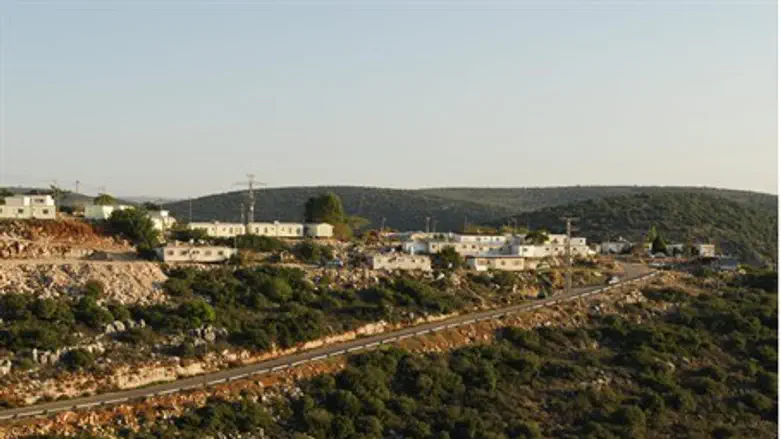
The European Union has postponed plans to introduce separate labeling for products from Israeli communities in Judea, Samaria and eastern Jerusalem, AFP reported on Sunday, quoting a report in the Haaretz newspaper.
Citing European diplomats and Israeli officials it did not identify, the paper reported that the plan, which had been due to be approved by EU foreign ministers later this week, will now not be put to ministers until the end of June.
Haaretz said that U.S. Secretary of State John Kerry, who is trying to revive peace talks between Israel and the Palestinian Authority, intervened with EU foreign policy chief Catherine Ashton at Israel’s request.
“Kerry and other senior U.S. officials asked Ashton and her staff, as well as several major EU states, to put off full enforcement,” Haaretz wrote.
“According to two European diplomats, the Americans said enforcing the decision at this time would harm Kerry’s efforts to revive negotiations between Israel and the Palestinians.”
Kerry is due back in the region on Thursday on his fourth visit since taking office in February.
In February, the EU formally recommended that its 27 member states “prevent” Israeli activity in Judea and Samaria through an economic boycott of Jewish communities in those regions.
The EU's boycott recommendation came to light in the publication of the EU’s Jerusalem Report 2012, in which the European body recommends its members avoid financial transactions with Israeli communities in Judea and Samaria.
A week after the recommendation, the Dutch government issued a first of its kind directive to retail chains in the country, telling them to mark Israeli products that were manufactured in Judea, Samaria, eastern Jerusalem and the Golan Heights.
EU foreign ministers, including Britain’s William Hague and Laurent Fabius of France, said last month they would back the labeling initiative.
Signatories also included the chief diplomats of Austria, Belgium, Denmark, Finland, Ireland, Luxembourg, Malta, the Netherlands, Portugal, Slovenia and Spain, according to AFP.
Former U.S. President Jimmy Carter last week called on the European Union to “introduce proper labeling of goods produced on illegal Israeli settlements in the West Bank.”
“With the Middle East peace process making no significant progress, we call on Europe to play a stronger and more independent role in revitalizing peace efforts, with a fresh approach,” Carter said.
“The EU has repeatedly condemned settlement expansion in the West Bank. It could therefore introduce a clear labeling of products made in Israeli settlements, which are illegal under international law,” he added.
Elsewhere in the world, South Africa imposed new rules in April, requiring that goods imported from Judea, Samaria and eastern Jerusalem display special labels.
The new rules stipulate that goods will no longer carry "Made in Israel" labels but instead will have to be specific about the exact origin of the goods.
Israeli sources have suggested that Israel meet the boycott by writing how many Palestinian Authority Arabs are employed in the factories that produce each of the goods. Israeli firms employ thousands of Arabs who cannot support their families otherwise due to the rampant unemployment in the PA and its mishandling of the massive funding it receives from the EU and others to create infrastructure and job opportunities.
